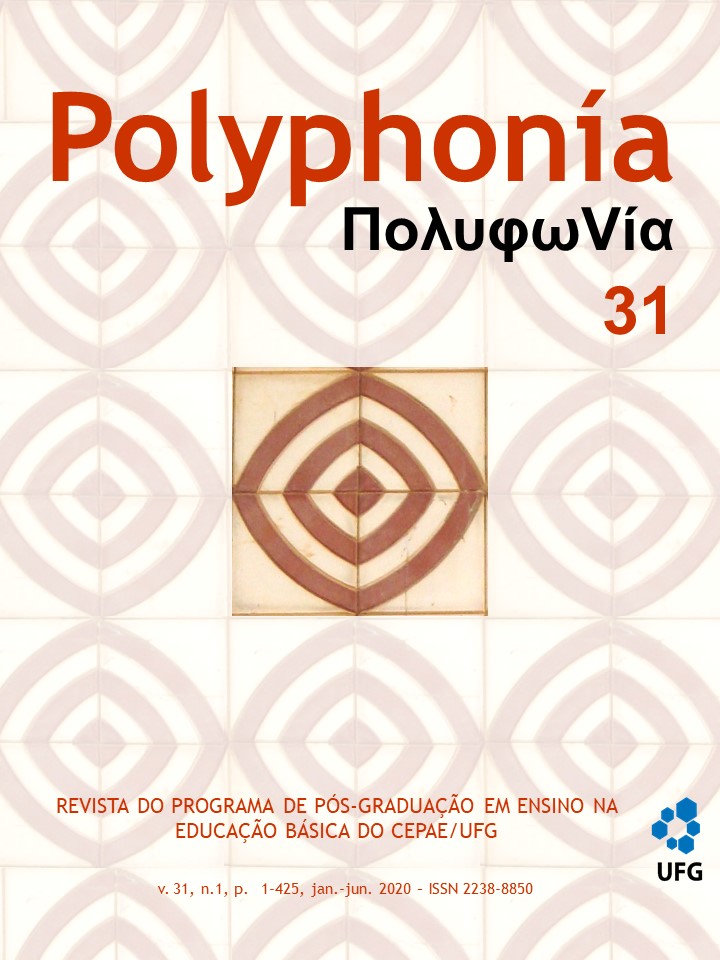A dança costurando saberes sociais na educação
DOI:
https://doi.org/10.5216/rp.v31i1.66950Resumo
Dançar é linguagem cultural humana de composição social que revela a organização do sentir e pensar humano, especialmente na educação. O objetivo deste estudo busca compreender a dança no enredo social da criança, na educação inscrita no percurso expressivo do desejo de ser, aprender e conviver. Foi desenvolvido um estudo de abordagem qualitativa, com base na hermenêutica fenomenológica, a partir de 10 oficinas de dança, com interação das crianças entre 5 e 11 anos de idade, de ambos os sexos, que frequentam instituições educativas formais e não-formais, do Brasil/Itajaí/SC e de Portugal/Braga, e integram os projetos de atenção socioeducativa. A dança agregou oportunidades de criação artística e interação social no encadeamento expressivo; possibilitou a apropriação da diversidade cultural em relações educativas que permitiram a emancipação humana, como sujeitos criadores do complexo mundo vivido, da cidadania atrelada à dança como patrimônio cultural; dançar envolveu o reconhecimento do ser humano de direitos e deveres que na convivência fortalece sua identidade cidadã.Downloads
Não há dados estatísticos.
Downloads
Publicado
2020-12-08
Como Citar
MELLER, Vanderléa Ana; DITTRICH, Maria Glória; STEIL, Isleide; BERBEL LEME DE ALMEIDA, Danielle. A dança costurando saberes sociais na educação. Revista Polyphonía, Goiânia, v. 31, n. 1, p. 125–142, 2020. DOI: 10.5216/rp.v31i1.66950. Disponível em: https://revistas.ufg.br/sv/article/view/66950. Acesso em: 21 jan. 2026.
Edição
Seção
Dossiê Escola, Complexidade e Justiça Social
Licença
Política de direitos autorais (acesso livre). Autores que publicam nesta revista concordam com os seguintes termos: Autores mantém os direitos autorais e concedem à Revista Polyphonía o direito de primeira publicação, com o trabalho simultaneamente licenciado sob a Creative Commons Attribution License que permitindo o compartilhamento do trabalho com reconhecimento da autoria do trabalho e publicação inicial nesta revista.
Autores têm autorização para assumir contratos adicionais separadamente, para distribuição não-exclusiva da versão do trabalho publicada nesta revista (ex.: publicar em repositório institucional ou como capítulo de livro), com reconhecimento de autoria e publicação inicial nesta revista.
Autores têm permissão e são estimulados a publicar e distribuir seu trabalho online (ex.: em repositórios institucionais ou na sua página pessoal) a qualquer ponto antes ou durante o processo editorial, já que isso pode gerar alterações produtivas, bem como aumentar o impacto e a citação do trabalho publicado (Veja O Efeito do Acesso Livre).


